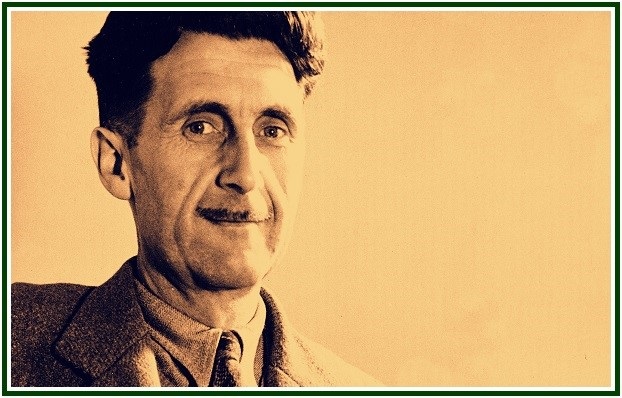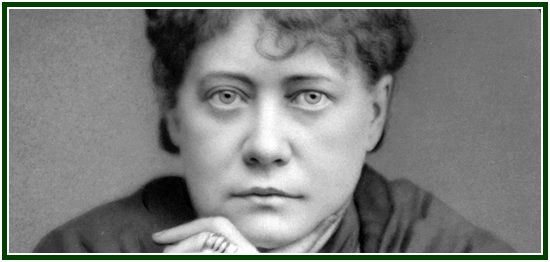
There Can Be No Firmness in One’s
Steps, in the Absence of Self-Discipline
Carlos Cardoso Aveline

A generous self-sacrifice was the natural
thing to do according to George Orwell (1903-1950)
* There is a sharp difference between peace and stagnation. In community, as in individual life, harmony does not include indulgence.
* Cooperation is preserved through the combination of self-responsibility, right action and the shared pursuit of legitimate goals.
* A true understanding of life is beyond words and cannot be verbally communicated. Being acquainted with an accurate description of reality is not the same as knowing the facts. Far from it.
* Before finishing the process of observation, the observer must be one with the facts examined. Happiness is secret, in part, because there is no way for it to be expressed in words. Purely mental thoughts, separated from the other levels of consciousness, are obstacles to a correct view of things.
* There is a time for the pilgrim to perceive little by little his future duty, and to slowly get ready to it. And then there’s a time to act accordingly. There is an occasion to prepare to work, and a time to work indeed. A time to sleep amidst beautiful concepts and ideas, and a time to wake up and walk along the uphill path.
* He who does not want to listen to his own conscience has no real interest in wisdom. A constant dialogue with the voice of his soul is an essential part of the “guiding system” for students of classic philosophy, Eastern and Western.
* According to your system of values, you build your own system of ethics. That which one considers right or wrong depends on what one defines as being of supreme importance.
* True ethics is based on real values, which belong to the soul, while the love of material possession creates a fake ethics. Every permanent value relates to the higher self. Eternal wisdom and right action expand and inspire one another.
* There can be no firmness in one’s steps, in the absence of self-discipline. Every day one must challenge and defeat laziness, the search for superficial change, love of comfort, personal hopes and fears. These and other feelings do not come from the spiritual soul. And even while strengthening the will and having firm decisions one must also keep the mind open, and preserve humbleness in the heart, in order to be able to see truth, little by little.
* Each action we perform in life, each project we unfold, and each idea we nurture, tend to expand one or two aspects of our character. Right actions create a correct character, expanding and strengthening it, while keeping negative tendencies at a distance. Therefore, the revolutionary question is: “Am I doing my best right now?”
* True peace results from the right kind of interaction between mind and heart. An inner silence is necessary for thoughts to be heard in the emotional world. An absence of noise makes it possible for the feelings to be understood on the realm of thought. A detachment from short-term outward situations allows one’s heart and mind to look at the world from the point of view of the “ladder” to the sky, antahkarana.
* An abstract will to do something may be enough to make a decision. Then one must put denser energies into motion so as to create the desired effects. The distance and contrast between intention and action should be observed. Within oneself, different levels of consciousness tend to obey to varied interests. A directness of view is rarely absolute and can be improved every day.
* Calm concentration results from one-pointedness, which means leaving secondary issues aside. Slow movements gather magnetism. Anxiety is the unfortunate mother of modern acceleration. Slow is the growth of a tree and a forest. Quick is their destruction. Unhurried is the breathing in Yoga; superficial inhalation denotes nervousness. The right kind of calm can be as quick as the lightning, while hurry seems to make strong movements, but leads nowhere.
* The question to be faced by each one is not whether an ethical improvement – a growth in wisdom – is possible in human community. For the answer is “yes”, for those who make an honest effort in that direction; and “no”, for those who don’t. Fear and laziness prefer to think negatively of human future. One must have real contact with one’s spiritual soul, to see that the future is bright, and to work for it to take place sooner than later. The real question before us, then, is whether we are aware of our personal responsibility for the fate of mankind, and how far we are able to act accordingly.
* Sweet hypocrisy, well-intentioned falsehood and pious frauds degrade truth by making it look like rude and unbearable. Thus the words cease to serve communication and start hiding truth more than they express it. When this is done, violence and fanaticism can spread in every department of life, for honest persons will be seen as intolerant, and liars, as spiritual souls. The power then belongs to whited sepulchres – until that moment when Karma brings Justice back.
* The various forms of nonsense that one finds in today’s society are humble expressions of the universal law. For the eternal Law of Equilibrium states something about decadence that can be expressed in many ways, and whose main idea remains the same: “Whenever human behaviour gets separated from a sense of honesty and truth, of moral beauty and ethical goodness, then thoughtless, irresponsible actions spread in the community, until common sense is once more recovered and the occult bridge to celestial consciousness is born again.”
* While blind instincts and unguided emotions promote painful ups and downs in life, energy is necessary to keep one’s focus in that which is right, to ignore the illusions of short-term pleasure and pain, and to discharge one’s duty. When pleasure is not a goal in itself, one attains to common sense. Universal wisdom is similar to pure water in natural conditions: it is colourless, odourless, tasteless, and has no rigid external form.
* In the 19th century just as in the 21st, many ask to be accepted in theosophical circles without ever asking themselves how they would like to help the altruistic project. The phenomenon can be seen in the “Mahatma Letters”. It is easy to detect today. Many who search for “initiations” are entirely enthusiastic about themselves, and utterly indifferent, in their hearts, as to the future of mankind. They are blind. Someone must tell them there is no theosophy whatsoever in the territory of selfish and neurotic intentions. Theosophy can only exist in honest minds and universal hearts.
* Sincerity and good will are widely accepted in theory. Everyone seems to like them, as long as they do not question one’s personal opinions, mental routine and emotional comfort. Hypocrisy, on the other hand, is elegant, superficially beautiful to look at, and above all – politically correct.
* Although the fruits of hypocrisy are bitter and bring about disaster, their short-term results are often sweet, especially for people who are foolish enough to live on appearances, and lazy enough not to think by themselves. For these and other reasons the way to truth is long, narrow, uphill, uncertain. It is also the only path available to real life.
* The search for political-correctness forms a living web of illusions, interconnected by their common support to the absence of realism. Thus organized ignorance emerges. How can one abandon the blind ways of life? A degree of indifference to pain and pleasure allows an individual to listen to his soul and perform right action regardless of applause or boycott.
* One’s spiritual soul is friendly to all beings: at the same time, it rejects the thousand and one forms of ignorance and selfishness, regardless of time and place. As each soul awakens, collective ignorance becomes weaker.
* Due to the law of equilibrium, every step in the multiplication of selfishness and ignorance across the world is compensated by an equal amount of growth in wisdom; which, however, may remain “invisible” for some time.
* Those who seem to see more ignorance than wisdom today should remember that the universe is governed by Law, and human affairs are no exception. However, that which is essential usually remains invisible in the world of passing illusions. It can be perceived by those who have the necessary degree of discernment.
* The timing of justice is not the timing of error; yet Justice is powerful and error is not. Justice is symmetry, and it expresses itself through the law of sowing and harvesting. Life consists of wave motions: Justice is a dynamic process. The re-establishment of equilibrium takes place in the right moments of each cycle.
* “The Secret Doctrine”, the masterpiece of Helena Blavatsky, is described by some as “exceedingly abstract” and “of little practical use in the 21st century”. In fact, mental superficiality is worse than useless in our century, and it has been so for ages.
* Active and responsible minds can profoundly benefit from the study of esoteric philosophy. The study of “The Secret Doctrine” – alongside with other classic works of philosophy – has a decisive and practical effect in daily life. It elevates the mind of the student from the narrow horizons of spiritual ignorance to a direct understanding of the cosmos and of his own heart. Its beneficial consequences include more than one lifetime. There is an impersonal universal wisdom flowing around that immortal poem about Infinite Duration and limitless Space. Its thoughtful reading liberates human minds from the painful myopia of small personal events and leads them to the wide nameless field of eternal bliss.
Orwell: Courage and Altruism
* While seeking for abstract truth has supreme importance, living examples of altruism should be cherished and kept visible. Practical lessons can be taken from them. The whole life of Eric Blair, or George Orwell, was an exercise in selflessness and idealism.
* Writing about how George Orwell barely survived the Second World War, while his wife didn’t, Tom Hopkinson said: “In the last year of the war, Orwell’s wife died, collapsing after a quite minor operation. To a friend who visited him, he remarked that this was probably due to lack of strength: both of them, he said, had consistently gone without their rations, or part of their rations, ‘so that there should be more for other people’.” [1] That was no isolated fact in Orwell’s life, or in his century. Even now, millions of people are invisibly altruistic around the world, a lesson we can learn if we have the eyes to see.
NOTE:
[1] “George Orwell”, a 40-pp. pamphlet by Tom Hopkinson, published by Longmans, Green & Co. for the National Book League, 1953. See p. 29.
000
“Thoughts Along the Road – 35” was published as an independent text on 16 July 2019. An initial version of it, with no indication as to the name of the author, is included in “The Aquarian Theosophist”, June 2017 edition, pp. 13-15. A few short notes written by the same author and anonymously published in that edition of “The Aquarian” were added to form the article.
000
Read more:
* Other writings of Carlos Cardoso Aveline.
000

Helena Blavatsky (photo) wrote these words: “Deserve, then desire”.
000